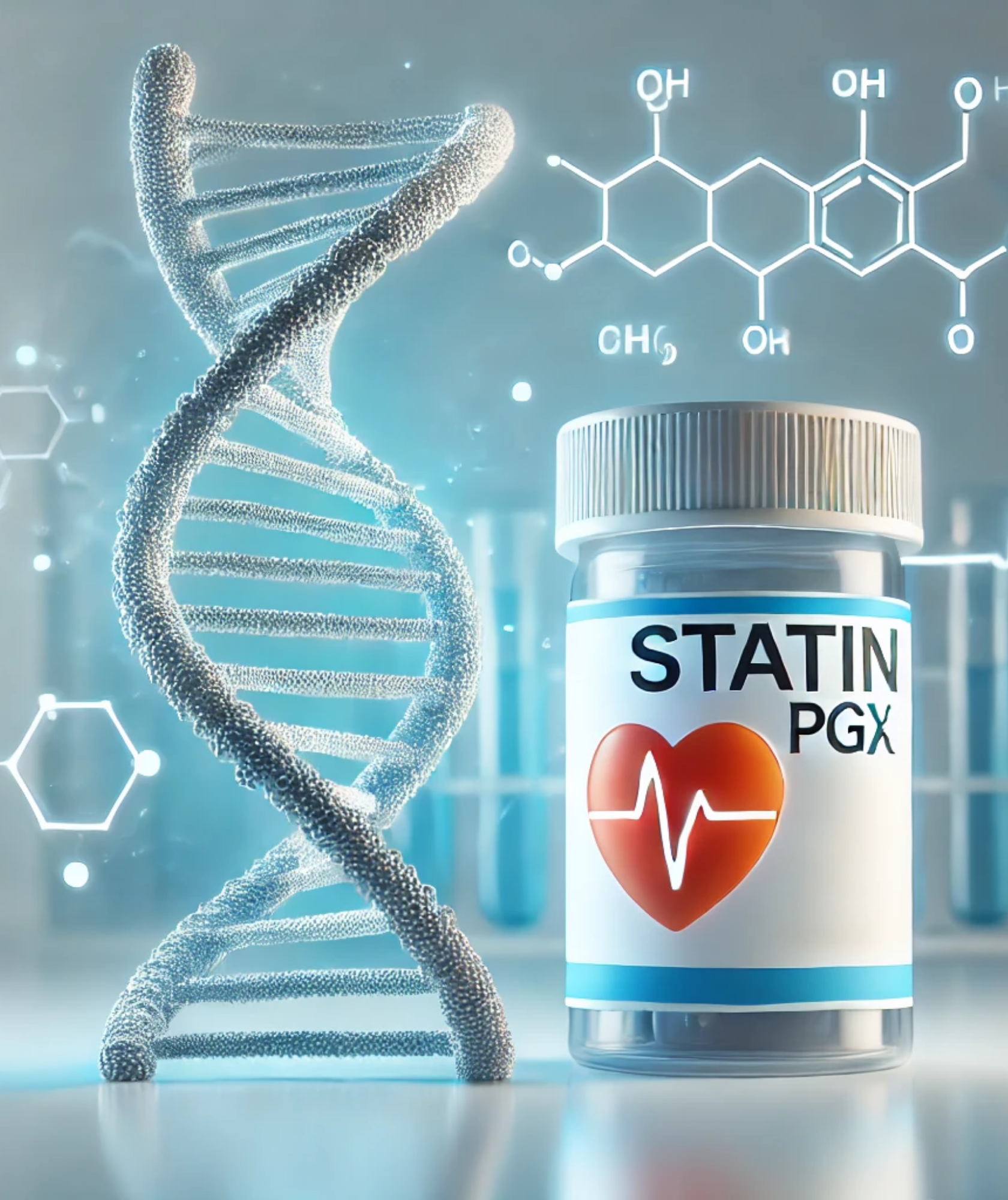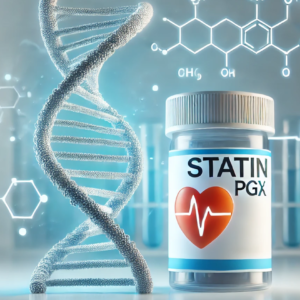Statin PGx Test: Unlocking Precision in Statin Therapy
The statin pharmacogenomics test is a revolutionary tool designed to personalize statin therapy for individuals managing high cholesterol and aiming to reduce cardiovascular disease risk. By analyzing your genetic profile, this cutting-edge test offers insights into how your body metabolizes statins, identifies genetic predispositions to statin-associated muscle pain, and determines the most effective dosage or alternative therapies. With precision medicine at the forefront of healthcare, the Statin PGx Test bridges the gap between genetic science and personalized treatment, empowering patients and clinicians to achieve better outcomes.
1. Who Should Take the Statin PGx Test?
The statin pharmacogenomics test is particularly beneficial for individuals who:
- Experience side effects like statin-associated muscle pain, fatigue, or statin intolerance.
- Are managing high cholesterol but want a treatment plan tailored to their genetic profile.
- Have a family history of inherited heart diseases or conditions like cardiomyopathy.
- Want to optimize their statin therapy outcomes while reducing the risk of adverse reactions.
2. Why Is This Test Important?
Statins are widely prescribed to manage high cholesterol, but their effectiveness and safety can vary significantly due to genetic differences. Leveraging genetic testing for statin side effects, healthcare providers can tailor treatments to reduce risks and enhance therapy outcomes.
Key Reasons for Genetic Testing:
- Prevents Side Effects: Identifies individuals at risk of statin-associated muscle pain and other adverse reactions. For instance, people with the SLCO1B1 gene variant may metabolize statins poorly, leading to higher drug levels and increased risk of side effects. (2)
- Personalized Treatment: Statin dosages are customized based on individual genetic profiles, ensuring safer and more effective therapy.
- Improves Drug Efficacy: Insights from statin drug response genetic testing help optimize statin therapy, improving cholesterol management and reducing cardiovascular risks. (3)
- Reduces Risk: Minimizes serious complications like myalgia, liver damage, and rhabdomyolysis. Genetic predispositions identified through the test allow for more precise interventions. (3)(4)
The Impact of Statins and Genetic Insights
- 30 million people in India suffer from coronary heart disease (CHD), and statins play a crucial role in treatment. (1)
- Statin prescription rates in India are significant, with only 8,000 per 100,000 CHD patients prescribed statins. (1)
- Indians metabolize statins differently, which can affect drug levels and increase the risk of adverse effects. The SLCO1B1 gene variant is present in around 15% of Indians, leading to statin intolerance. (1)
3. DrOmics pharmacogenomics test for statin:
DrOmics Labs’ Statin PGx Test harnesses advanced genetic analysis to personalize and optimize your statin therapy, ensuring the most effective medication and dosage for your cardiovascular health. By evaluating your unique genetic profile, the test provides tailored recommendations that enhance treatment safety and efficacy while minimizing the risk of adverse drug reactions. Powered by cutting-edge technology, it delivers accurate and reliable insights to guide your medication choices, resulting in improved outcomes and long-term cardiovascular well-being through a customized, science-driven approach.
| Drug | Disease |
| atorvastatin | Muscular Diseases |
| lovastatin acid | Hyperlipidemias |
| rosuvastatin | statin-related myopathy |
| fluvastatin | Arteriosclerosis |
| simvastatin | Myalgia unspecified |
| pitavastatin | Hypercholesterolemia |
| pravastatin | Coronary Artery Disease |
| lovastatin | Coronary Disease |
| cerivastatin | Myocardial Ischemia |
| Myocardial Infarction | |
| Hyperlipoproteinemia Type II | |
| Acute coronary syndrome | |
| Rhabdomyolysis | |
| Diabetes Mellitus | |
| adverse events | |
| Chronic Disease | |
| Familial hypercholesterolemia | |
| Cardiovascular Disease | |
| Vascular Diseases | |
| Dyslipidaemia |
4. How does this work
- Sample Collection: A simple DNA sample, typically from a cheek swab, is collected.
- Comprehensive Analysis: Genetic markers are analyzed to identify inherited risk factors and pharmacogenomic profiles.
- Actionable Results: Receive a detailed report highlighting genetic predispositions, risk factors, and personalized treatment recommendations.
- Consultation: Results can be reviewed with a genetic counselor or cardiovascular specialist to tailor a treatment plan.







Reviews
There are no reviews yet.